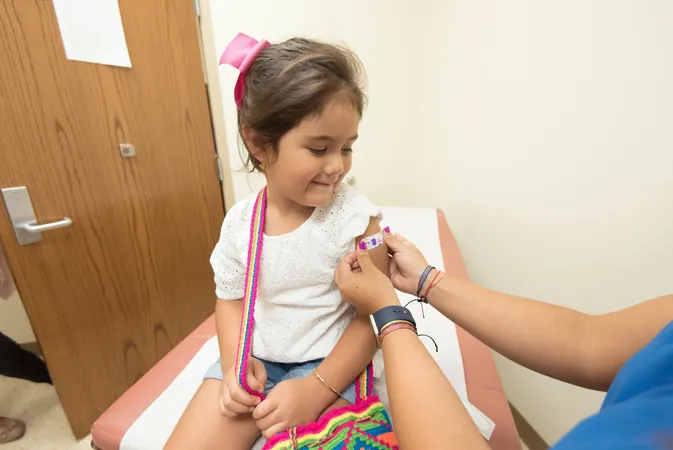
Alarming Decline in Antiviral Drug Use Among Young Flu Patients: Are We Missing the Mark?
2024-12-17
Author: Sarah
Introduction
A new study reveals a troubling trend: despite established medical guidelines recommending antiviral medications for young children diagnosed with influenza, their use is alarmingly low. Published in the journal *Clinical Infectious Diseases*, the study highlights the gap between recommended treatment practices and actual patient care.
Impact of Influenza on Pediatrics
Influenza is a significant concern in pediatrics, with flu illnesses contributing to nearly 10% of all pediatric hospitalizations during winter in the United States. The guidelines, set forth by reputable bodies such as the Centers for Disease Control (CDC), the Infectious Diseases Society of America, and the American Academy of Pediatrics, advocate that all hospitalized children with suspected or confirmed influenza should receive antiviral treatment promptly, regardless of their symptom duration or vaccination status.
Study Findings
However, lead researcher Dr. James Antoon, an assistant professor of Pediatrics at Vanderbilt University, expressed concern over the study's findings: nearly half of hospitalized children did not receive antiviral therapy, despite these strong recommendations. "Use of these antivirals can significantly shorten the duration of symptoms and help prevent serious complications linked to influenza," Antoon explained.
Conducted from December 1, 2016, to March 31, 2020, the multicenter study evaluated 1,213 children hospitalized with laboratory-confirmed influenza across seven pediatric medical centers in the CDC’s New Vaccine Surveillance Network (NVSN). Alarmingly, only about 50% of children who underwent research or clinical influenza testing were treated with antivirals. Among those assessed clinically by a physician, that number rose to nearly two-thirds, indicating a missed opportunity in many cases.
Infants and Antiviral Treatment
Compounding the issue, almost 37% of hospitalized infants under six months—who cannot receive flu vaccinations—were not given antiviral treatments. Addressing the study's findings, Dr. Natasha Halasa, a prominent figure in Pediatric Infectious Diseases at Vanderbilt, pointed out that recent data indicated an overall drop in antiviral treatment for hospitalized children and adolescents with influenza—from 70%-86% during the 2017-2018 flu season to less than 60% in 2023-2024. She further noted that merely 30% of children and adolescents at heightened risk for flu complications received antivirals during outpatient visits.
Need for Improvement
Antoon emphasized the critical need to identify barriers to antiviral treatment, stating, "Understanding these challenges is vital to enhance clinical testing and optimize care for these vulnerable patients." The implications of inadequate antiviral therapy extend beyond mere inconvenience; untreated influenza can lead to serious complications such as pneumonia and other respiratory infections. Data suggests that timely antiviral treatment is linked to shorter hospital stays and reduced likelihood of requiring mechanical ventilation or intensive care unit admissions.
Conclusion
As we enter the flu season, this study serves as a wake-up call. Are children receiving the care they need? The decline in antiviral use underscores the importance of adhering to medical guidelines to protect our youngest population from the dangers of influenza. Health authorities must act swiftly to address this gap and ensure that no child is left vulnerable to the impacts of flu. Let's tackle this crisis together before our children pay the price!
 Brasil (PT)
Brasil (PT)
 Canada (EN)
Canada (EN)
 Chile (ES)
Chile (ES)
 España (ES)
España (ES)
 France (FR)
France (FR)
 Hong Kong (EN)
Hong Kong (EN)
 Italia (IT)
Italia (IT)
 日本 (JA)
日本 (JA)
 Magyarország (HU)
Magyarország (HU)
 Norge (NO)
Norge (NO)
 Polska (PL)
Polska (PL)
 Schweiz (DE)
Schweiz (DE)
 Singapore (EN)
Singapore (EN)
 Sverige (SV)
Sverige (SV)
 Suomi (FI)
Suomi (FI)
 Türkiye (TR)
Türkiye (TR)